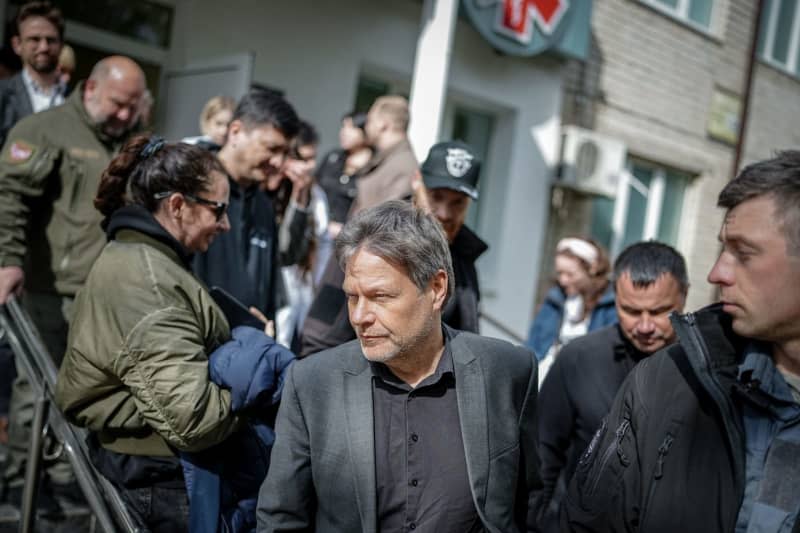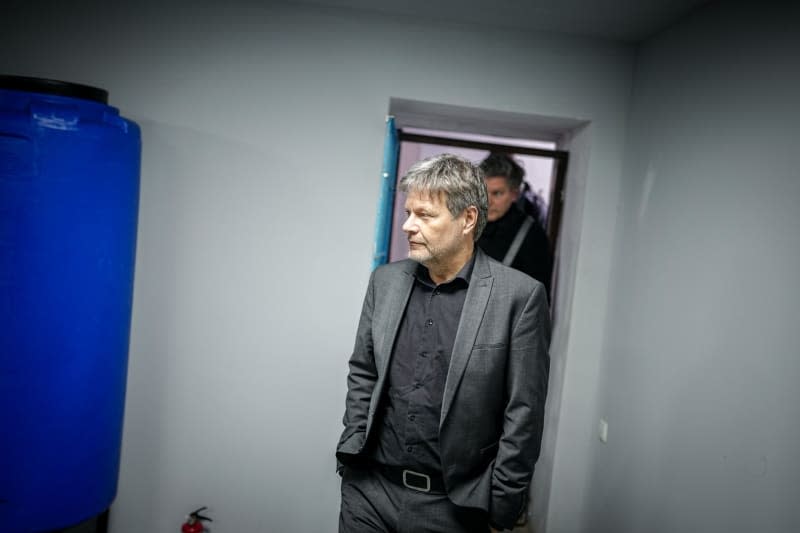Germany's Habeck calls for greater allied support for Ukraine

- Oops!Something went wrong.Please try again later.
German Vice Chancellor Robert Habeck said on Friday that allied support for Ukraine needs to increase as the country faces growing pressure from attacking Russian forces.
Speaking on the second day of his visit to the country, Habeck said that Ukraine had a right to expect promises from Western supporters to be kept, and reassured Ukrainians that German support would be "reliable and long-term."
The Ukrainian government's specific requests from Germany related to the military and energy sectors, he said, adding that Berlin was looking into the possibility of supplying gas turbines and parts of power plants.
Discussions also addressed whether renewable energy like solar power systems could address Ukrainian needs.
"A large power plant is a target, but 1,000 solar roofs are difficult to hit and 30 wind turbines are also difficult to hit," said Habeck, who also serves as Germany's economy minister.
On Thursday, Habeck met Ukrainian President Volodymyr Zelensky to discuss the military situation, as well as German economic development and business investment in the country.
German leaders have been publicly campaigning for NATO allies to supply Ukraine with additional Patriot air-defence systems, and last week pledged to send an additional Patriot system from German military stocks.
NATO chief Jens Stoltenberg said in Brussels on Friday that several allies had made "concrete commitments" to send further air-defence weapons for Ukraine, including Patriot systems.
Ukraine is suffering badly from Russian air attacks with drones, missiles and glide bombs.
In response to a question about stalled military aid for Ukraine from the United States, Habeck said that Germany, as the strongest economic power in Europe, had "a new task."
He called for an increase in arms production, noting that weapons are in demand both for Ukraine and for the German military.
Habeck began Friday in a bomb shelter in Kiev because of the threat of incoming Russian missiles and drones, as an air-raid alarm was triggered at 4:40 am (0140 GMT).
Habeck and his entourage spent about an hour and a half seeking shelter in the underground car park of their hotel before the all-clear signal was given.
According to the Ukrainian Air Force, several missiles were initially headed for northern Ukrainian areas but then veered off course.
Later during his trip on Friday, Habeck came within sight of the aftermath of a Russian missile strike, as a huge column of smoke rose over the port city of Odessa.
Several missiles had apparently hit the nearby seaport of Pivdennyi on the Black Sea.
When Habeck's delegation passed the area around three hours later, a column of smoke could still be seen in the sky.
Habeck left Ukraine in the evening and travelled to neighbouring Moldova, where he plans to meet Moldovan Prime Minister Dorin Recean and other government representatives before returning to Germany.


